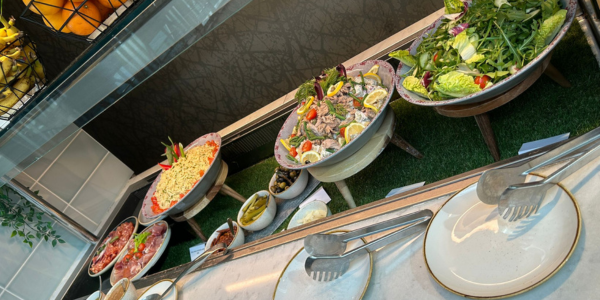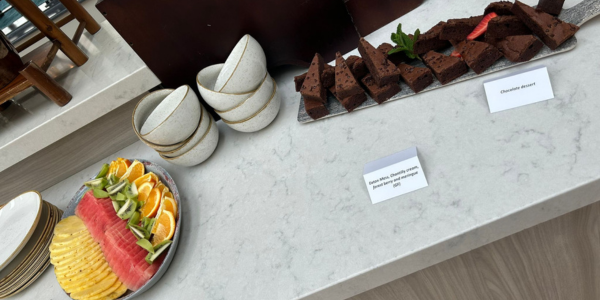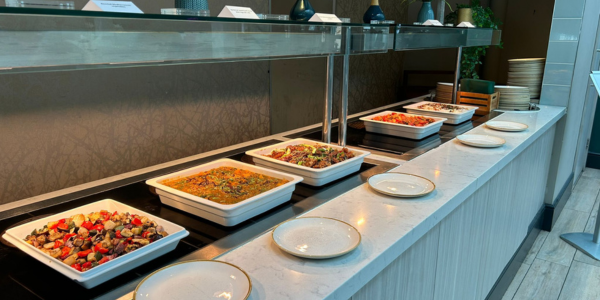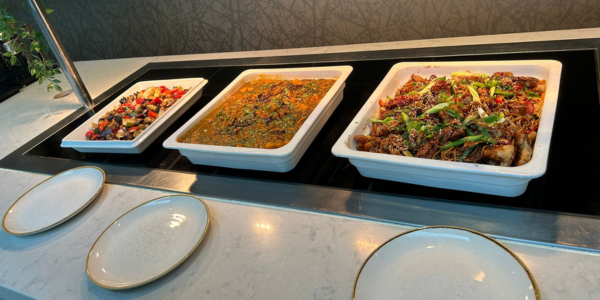From the rise of Veganuary to the growing popularity of Dry January, event planners are reimagining event catering to appeal to diverse preferences and dietary choices. But does it work?
Understanding food trends and types
Event planners are increasingly embracing food trends that support the changing preferences of their delegates. Vegan and plant-based options are gaining traction, reflecting a wider societal shift toward healthier and more sustainable food choices.
However, it’s essential to strike a balance, recognising that not everyone may be on board with the latest health craze.
One venue that has taken food trends to the extreme is Beck Hall, England’s first fully Vegan hotel. Owners Louise and Andy say, “We’ve been on a personal journey which started at a place of compassion for animals and eventually led our family to a plant-based / vegan diet. We also recognise the positive impact eating more plants can have on the environment and on health. What we’ve learnt is that plant-based food can be truly exciting and delicious.”
Event type
You may find it beneficial to consider the type of event, its message, and the audience to ensure the food choices complement the event itself. Food is often the main topic addressed in post event feedback, so make sure you consider the specifics of the event before writing up your menu.

In 2023, the World Health Organization released an action guide for sports event organisers, Healthier food and healthier food environments at sports events.
The publication proposes five actions to achieve healthier food and healthier food environments in and around sports stadiums, from improving the food on offer to preventing harmful marketing.
Does ‘unhealthy’ beat healthy?
Surprisingly, the appeal of indulgent, ‘unhealthy’ options can sometimes outshine the appeal of health-conscious menus. Event planners need to consider whether the time of year impacts these preferences – do attendees crave comfort food in the colder months, and opt for lighter fare in the spring and summer?

Or should organisers cater fully to attendees participating in Dry January and Veganuary? Again, striking the right balance between wholesome and indulgent choices can enhance the overall event experience.
Getting serious about nutrition
The way that food is cooked can have a huge effect on the meal’s nutritional value. Opting for baked, poached, grilled, roasted, steamed or broiled and avoiding fried food is great. But even leaving rich sauces, dressings, and seasonings on the side can help – the choice is placed in your delegates’ hands, which many will appreciate.
And if you want to get super serious about nutrition for a large event, you can seek catering advice from a dietitian!
In fact, while many hotels and venues still prefer to offer carb heavy and buffet options which can be easier to prepare on scale, rather than considering changing eating habits, lots are reviewing their menus. Hilton has been working in partnership with a nutritionist to improve their menu offerings.
“Historically, breakout dining has tended to consist of heavy starch-based foods such as curries, pasta bakes, and rice dishes, with an emphasis on meat proteins and highly saturated fat sauces. We’ve worked in consultation and collaboration with a registered nutritionist, India Noakes, based at Imperial, University of London. Her research show that the new menu is directly linked to more steady blood sugar levels and therefore better concentration and focus.” – Hilton Hotels
Cost reduction
While offering healthier food options may seem more expensive, smart planning can help reduce costs without compromising quality. Seasonal and locally sourced ingredients can contribute to sustainability and be more cost-effective.
Also, meat is expensive! Reducing or cutting it out of a menu and opting for plant-based alternatives could help to save money and is better for the environment. Event planners should explore creative ways to align budget constraints with the desire for healthy and appealing menus.
Local suppliers
The focus on sustainability extends beyond the food itself to the sources it comes from. Many venues are promoting sustainability by partnering with local suppliers and reducing the carbon footprint associated with food transportation.
This approach supports local businesses and supports delegates’ growing environmental consciousness.
Local and sustainable menu options can also affect your choice of venue. 15Hatfields in London is just one venue that prides itself on offering first-class catering, sourced through local and fairtrade suppliers. They go several steps further and work with partners to minimise food waste, replace single-use plastic with compostable and natural alternatives, share excess ingredients, and more.
Catering to multi-cultural tastes
At any event, there could be international delegates with different preferences and customs. It’s crucial to recognise and cater to the various tastes of multicultural delegates.
Non-foodies might prefer some traditional ‘beige buffet’ choices, and some may be reluctant to indulge in flavours they aren’t used to. For the right event, a well-done sandwich buffet can be the perfect choice during some lunchtime networking.
Again, it’s all about that delicate balance, and ensuring the menu is inclusive.

Know your audience
The key takeaway is … don’t order takeaways! I’m kidding. It’s Friday and as I typed takeaway, a weekend night trip to the local Chinese for takeout sprang to mind.
So, the key takeaway for event planners is to know their audience. It’s essential not to make assumptions based on your personal preferences, or be overly influenced by figures like the CEO.
A one-size-fits-all approach to catering probably won’t resonate with everyone. Instead, consider gathering feedback or preferences from delegates and be smart about creating a menu that has something to appeal to collective palates.

Event food plays a vital role in shaping the overall experience. By staying accustomed to current food trends, considering the impact of seasons and sustainability, and catering to diverse tastes, event planners can create a culinary experiences that resonate with all attendees.
The ultimate message is clear: know your audience, embrace diversity, and let the menu reflect the unique and varied preferences within your delegate community.
And if you need support with event catering and planning or have any questions, don’t hesitate to reach out to our experienced event management team. We’re here to help! Contact Bien Venue

